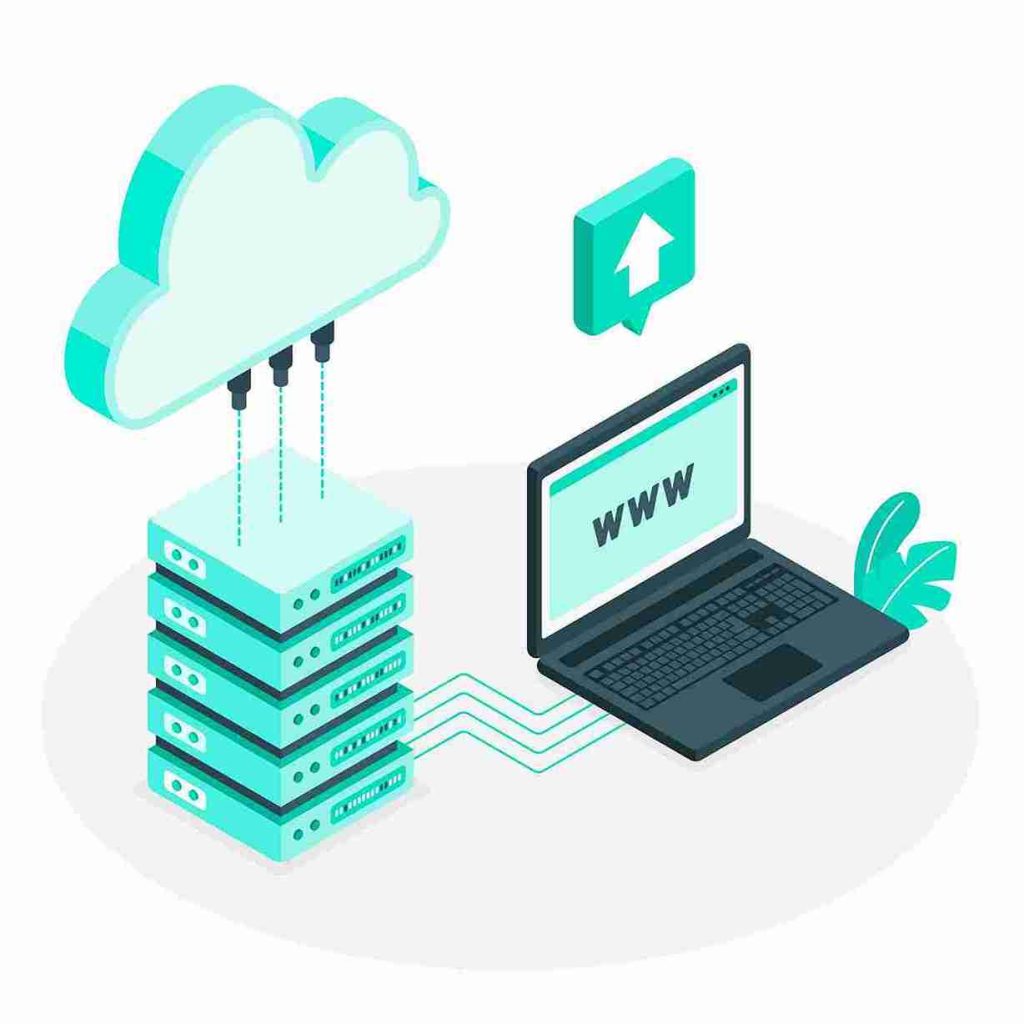Website Hosting
As all Information Technology (IT) sectors get disrupted, website hosting is no exception. One noticeable advancement comes from artificial intelligence. AI is significantly impacting web hosting by enhancing security, optimizing resource allocation, improving user experiences, and enabling predictive maintenance, all while potentially leading to more efficient and eco-friendly hosting solutions.
Let’s look at these areas in detail:
Enhanced Security: AI algorithms can identify unusual behavior and threats, proactively mitigating attacks and reducing vulnerabilities.
Resource Optimization: AI dynamically allocates server resources based on real-time demand, ensuring smooth performance during traffic surges and preventing overload.
Predictive Maintenance: AI systems analyze server performance in real-time, predicting potential failures before they occur, allowing for proactive maintenance and preventing downtime.
Improved User Experiences: AI helps deliver personalized user experiences by analyzing customer behaviour and preferences, optimizing content delivery based on user location and device type.
Eco-Friendly Hosting: AI minimizes energy consumption by managing server loads efficiently, reducing the carbon footprint of web hosting.
Performance Optimization: AI can analyze website performance data and suggest improvements to enhance speed and efficiency.
The rise of AI brings convenience and fresh opportunities to the web hosting industry. AI’s ability to think and learn helps optimize server performance using predictive analytics. The advanced firewall technology used by artificial intelligence swiftly identifies the encrypted patterns and threats that cyber attackers pose. Data centres use AI to manage the heating and cooling system and mitigate any security breaches and hazards.
AIs applications are endless, and each web host can come up with creative ways to harness and utilize AIs potential. Quality web hosting is all about speed, security, and uptime. AI improves all these aspects by analyzing tons of data and spotting hidden bugs and glitches. Everyone benefits from AI’s capabilities. The hosting company saves time and reduces operational costs, while customers enjoy fast-loading websites with excellent security and performance. Saved resources can be directed to areas that use them the most.
Website Hosting
Other Website Trends To Take Note Of:

Green Hosting
Carbon emission contributes to global warming. Having environmental friendly hosting, goes a long way in reducing carbon emission. No wonder, an increasing number of hosting companies are becoming environmentally aware and investing in eco-friendly initiatives.
Multi-Cloud Hosting
With an increase in cyber attacks, keeping all the hosting in one area, might prove to be risky. With multi-cloud hosting, companies can offset the risk of cyber threats, downtime, and data loss, by distributing computing resources across several high-end hosting providers. This improves disaster recovery measures.
A multi-cloud setup could be all-private, all-public, or a combination of both.
Managed Web Hosting Services
Managed Web hosting has been around for a while, but it never really kicked into gear until the pandemic. With millions of new users flooding cyberspace, managed web hosting plans provide all-inclusive solutions for newcomers who lack the technical skills to run and optimize a website.
The host takes care of everything from backups and security to optimal speed and system updates, leaving the user to concentrate on content and audience. Some managed web hosting providers rent out computer servers that are completely operated by the service provider. For organizations that want to keep pace with the latest trends and regulations, managing web hosting is a viable solution.
Hybrid Hosting
As the word suggests, hybrid is a combination of two different items. Hybrid hosting combines the features and benefits of dedicated hosting and cloud hosting. It provides businesses with a flexible and scalable hosting solution that leverages the advantages of different hosting environments.
In hybrid hosting, a portion of the infrastructure is allocated to the client’s specific needs, while another is hosted in the cloud. This combination allows businesses to customize their hosting environment, optimize performance, and manage their resources efficiently. And, boosts its disaster recovery measures by using dedicated servers in different geographical locations and leveraging the cloud’s backup and replication capabilities, businesses can create resilient architectures to minimize downtime and data loss.
Containerized Hosting
Containerization is a method of virtualization that allows applications and their dependencies to be packaged and run in isolated environments called containers. Each container is a lightweight, standalone unit that contains everything needed to run the application, including the code, runtime, system tools, and libraries.
Multiple containers can run on a single physical server, and additional containers can be easily provisioned or terminated to match the current workload.
Serverless Hosting
Serverless hosting is a trend that has gained significant attention and popularity in recent years. It is a cloud computing model where the hosting provider manages the underlying infrastructure, and developers focus solely on writing and deploying code.
These events include HTTP requests, database updates, file uploads, or scheduled tasks. Serverless platforms handle event routing and execution, allowing developers to focus on building event-driven workflows and processing data efficiently.
Data Centres
Data centres have been decreasing in the past years. Although the demand is higher than ever, physical data centres are slowly becoming obsolete. Contrary, cloud hosting has been growing aggressively as it offers greater flexibility, security, and speed.
Edge Computing
Edge computing refers to the processing and storing of data closer to the source of its generation rather than relying on a centralized cloud infrastructure. This proximity to the edge of the network reduces latency and improves the overall performance of web applications.
Traditionally, web hosting relied on centralized data centers in specific geographic regions. When a user requested information from a website, the data had to travel back and forth between the user’s device and the central server, leading to latency and potential bottlenecks.
With edge computing, the processing power and storage capabilities are distributed across multiple edge locations, often positioned closer to the end users. These edge locations are typically small data centres or server clusters strategically placed in various locations.
Conclusion:
With all these advancements, you need to get a hosting agency that is ahead of the rest. Get in touch with us so that we may attend to your requirements.
EXCELLENTTrustindex verifies that the original source of the review is Google. Best in town. Dedicated and vast experienced team.Posted onTrustindex verifies that the original source of the review is Google. Really great service, quality and professional team!Posted onTrustindex verifies that the original source of the review is Google. Great work as alwaysVerified by TrustindexTrustindex verified badge is the Universal Symbol of Trust. Only the greatest companies can get the verified badge who has a review score above 4.5, based on customer reviews over the past 12 months. Read more


